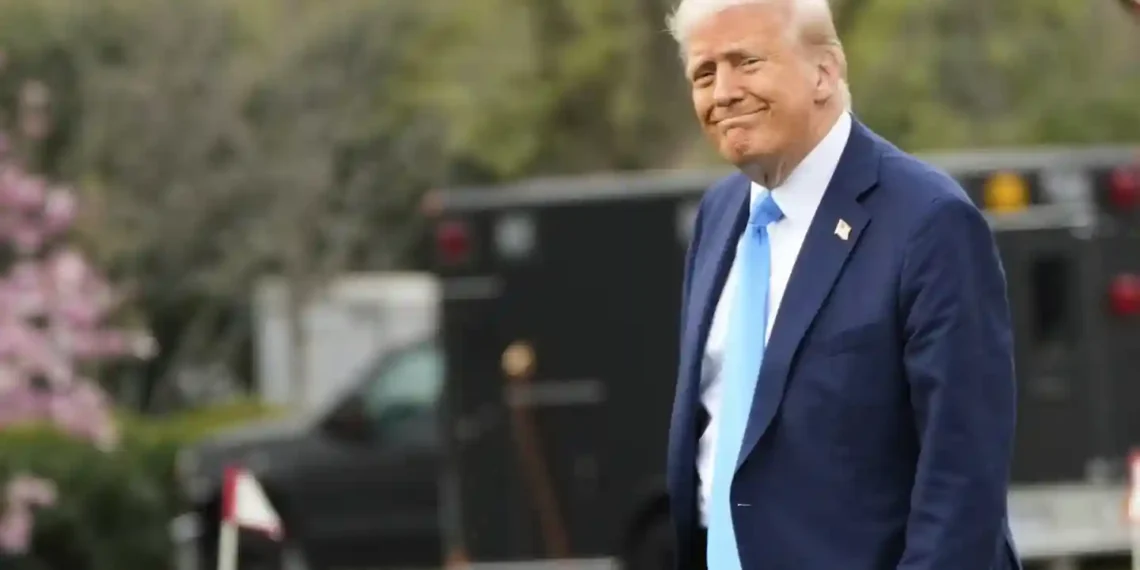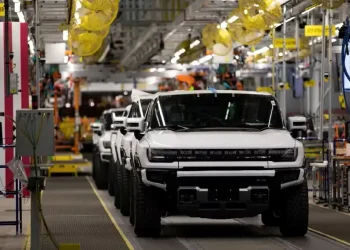Trump’s ‘Liberation Day’ Tariffs: What It Means for You and the Economy
President Donald Trump has declared April 2 as “Liberation Day,” a moment he claims will free the United States from reliance on foreign goods. His plan? A sweeping set of tariffs aimed at taxing imports from various countries, including the European Union, South Korea, Brazil, India, and China. But while Trump touts this as an economic victory, experts warn that American consumers and businesses may feel the real cost.
Trump’s proposed tariffs include:
- “Reciprocal” tariffs matching the rates imposed by other countries.
- 25% auto tariffs, aiming to push Americans toward U.S.-made vehicles.
- Taxes on key imports such as pharmaceuticals, copper, lumber, and steel.
- A 25% tariff on oil from Venezuela, despite the U.S. also importing it.
- A 20% tax on Chinese imports, justified by China’s role in fentanyl production.
- Additional tariffs on Canada and Mexico, citing concerns over drug smuggling and illegal immigration.
Trump argues these tariffs will restore economic fairness, claiming foreign nations have long “taken our jobs, our wealth, and much more.” However, the economic reality is more complicated.
Most economists predict that tariffs will lead to higher prices for everyday goods, from cars and groceries to housing materials. Here’s what to expect:
- Automobile Costs: Tariffs on foreign-made cars could raise vehicle prices significantly. Economist Art Laffer estimates a $4,711 price increase per vehicle if auto tariffs are fully implemented.
- Housing Prices: Mayor Andrew Ginther of Columbus, Ohio, warns that tariffs on building materials could increase the median home price by $21,000, making homeownership more difficult.
- Slower Economic Growth: Investment bank Goldman Sachs projects that economic growth could slow to 0.6% this quarter, a sharp drop from 2.4% at the end of last year.
- Inflation Risks: Treasury Secretary Scott Bessent downplays inflation concerns, calling tariffs a “one-time price adjustment.” However, analysts warn that tariffs on goods could trigger higher costs for services, affecting industries from auto repair to insurance.
International leaders are preparing countermeasures, seeing Trump’s tariffs as harmful to global trade:
- Canada: Prime Minister Mark Carney criticized the tariffs, saying they mark the end of U.S.-Canada economic cooperation. Canada has already announced retaliatory tariffs.
- France: President Emmanuel Macron called the tariffs “not coherent,” warning they could break supply chains, fuel inflation, and destroy jobs.
- Mexico: President Claudia Sheinbaum is avoiding immediate retaliation but emphasizes the need to protect Mexican jobs.
- China: The Chinese government denounces the tariffs as a threat to the global trading system, stating, “There are no winners in trade wars.”
April 2 is the third time Trump has labeled a key date as “Liberation Day.” Previously, he used the term for Election Day (Nov. 5) and his potential Inauguration Day (Jan. 20, 2025). His repeated use of the phrase highlights how central tariffs are to his vision of economic nationalism.
While Trump sees tariffs as a tool for American economic strength, critics argue they could burden consumers, disrupt supply chains, and weaken global partnerships. With consumer confidence dipping and market uncertainty growing, “Liberation Day” may not feel like a celebration for everyone.
This article was rewritten by JournosNews.com based on verified reporting from trusted sources. The content has been independently reviewed, fact-checked, and edited for accuracy, neutrality, tone, and global readability in accordance with Google News and AdSense standards.
All opinions, quotes, or statements from contributors, experts, or sourced organizations do not necessarily reflect the views of JournosNews.com. JournosNews.com maintains full editorial independence from any external funders, sponsors, or organizations.
Stay informed with JournosNews.com — your trusted source for verified global reporting and in-depth analysis. Follow us on Google News, BlueSky, and X for real-time updates.














